The Libyan dilemma
Adelina Marini, March 9, 2011
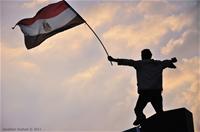 Although they start peacefully, protests always turn into a wish to kill and be killed, a recently said Israeli Defence Minister Ehud Barak. Then he meant Egypt, where in the beginning of the protests, before they have inflamed genuinely, they were considered mainly in the context of their impact on the Middle East peace process. Then Ehud Barak proved not right. Unlike now in Libya, where his words materialise in the form of fired cartridges. And now the stake is different - the oil prices, the prices of commodities, the humanitarian crisis, the refugees influx, risks for the trade routes in the region and only then, eventually, come older problems like the Middle East peace process.
Although they start peacefully, protests always turn into a wish to kill and be killed, a recently said Israeli Defence Minister Ehud Barak. Then he meant Egypt, where in the beginning of the protests, before they have inflamed genuinely, they were considered mainly in the context of their impact on the Middle East peace process. Then Ehud Barak proved not right. Unlike now in Libya, where his words materialise in the form of fired cartridges. And now the stake is different - the oil prices, the prices of commodities, the humanitarian crisis, the refugees influx, risks for the trade routes in the region and only then, eventually, come older problems like the Middle East peace process.
The Hamlet-like dilemma of the international community
To attack or not to attack Libya? This indeed is the question which splits right now not only the European Union but the United States as well. Without internal dilemmas are countries like Russia and Turkey, who are firmly against any military interference in the Jamahiriya. The main fears of everyone against are related to the bitter experience from the wars in Iraq and Afghanistan, which have been going on for too many years now without any perspective of success, even less of achieving the announced goal - victory of people's wish for democracy and rights.
Currently heated negotiations are taking place at the level of the United Nations, as NATO's Secretary General, Anders Fogh Rasmussen, also announced on Monday (March 7) that the Alliance would consider interfering only after a corresponding resolution of the Security Council. In the meantime, urgently a compromise solution is to be found, like imposing a no-fly zone over Libya, on which there are also disputes.
The stalemate, created by colonel Muammar Gaddafi's firm refusal to step down, is deteriorating further, which forced some countries to undertake desperate attempts for secret operations, hoping to topple the dictator quietly and peacefully, without the need of open military actions and, relatively, to unleash a bigger humanitarian crisis. Britain held such an operation, which ended with a failure though, and the capture of several British soldiers by Libyan rebels. The case sparked serious wrangling in Britain and even the Foreign Secretary, William Hague, found himself forced to respond to questions in Parliament on Monday on the case.
Probably the operation, prepared and held by the MI6 with the assistance of the British special forces SAS could have been not very well planned to the tiniest detail, but it should also be said that the international community is acting absolutely in the dark in Libya, which is still split on a clan principle and it is hard to say who are ordinary protesters, who are rebels and, in general - who is fighting for what.
In the meantime, the BBC reported from Benghazi of unofficial negotiations for Muammar Gaddafi's stepping down under the condition that he would be given a safe passage out of the country and a promise that he would not be prosecuted. Still 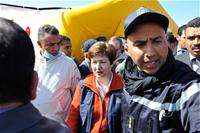 there is no official confirmation of this information, and various sources in Tripoli either deny firmly or refuse to comment.
there is no official confirmation of this information, and various sources in Tripoli either deny firmly or refuse to comment.
The burning European rug
Against the backdrop of the growing humanitarian crisis and the growing influx of illegal immigrants toward Europe's shores, European Council President Herman van Rompuy called a special European Council, dedicated entirely on Libya. The summit will take place on March 11, on Friday morning because in the afternoon will take place the first of its kind summit of the leaders of the euro area. At the Council for Libya Mr Van Rompuy proposes the leaders of the 27 EU member states to discuss measures to overcome the dramatic events in Libya; mobilisation of further resources to meet the humanitarian situation; challenges to the EU posed by irregular migration; the evacuation of EU citizens; as well as support to the political transitions underway in Tunisia, Egypt and the broader region.
Besides, Mr Van Rompuy proposes a full review of EU's Neighbourhood Policy to be made with the aim to set up a new partnership, related to the specific needs of the countries that this policy covers.
In preparation for the European Council on Friday EU High Representative for Foreign Affairs Catherine Ashton sent a fact-finding mission to Libya, led my Agostino Miozzo, Managing Director in the European External Action Service for Crisis Response and Operational Coordination. The mission's main task was to asses the humanitarian situation in the region, as well as the efforts for evacuation of European citizens. From Lady Ashton's message it becomes clear that the Italian government and Minister of Foreign Affairs Franco Frattini, in particular, contributed a lot for the realisation of this mission, without elaborating how exactly.
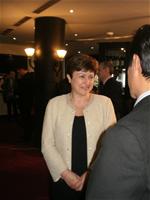 The fact that Mr Miozzo led the fact-finding mission in Libya, instead of the field Commissioner Kristalina Georgieva, arouse euinside's curiosity. Responding, Ms Georgieva, who was also in the Jamahiriya recently, said that the fact-finding mission was a political mission, focused on evacuation, which is in the competences of the member states and foreign policy in general. "We use all the possible points of contacts that could help in humanitarian aspect, but in this case what we want is not one of us to be allowed to land in Tripoli but the humanitarian workers there to be given access where there are shots, which has not happened yet. I'm interested in us having opportunity to send humanitarian teams where there are wounded, where there are killed, where there is a humanitarian problem" the Bulgarian EU Commissioner added.
The fact that Mr Miozzo led the fact-finding mission in Libya, instead of the field Commissioner Kristalina Georgieva, arouse euinside's curiosity. Responding, Ms Georgieva, who was also in the Jamahiriya recently, said that the fact-finding mission was a political mission, focused on evacuation, which is in the competences of the member states and foreign policy in general. "We use all the possible points of contacts that could help in humanitarian aspect, but in this case what we want is not one of us to be allowed to land in Tripoli but the humanitarian workers there to be given access where there are shots, which has not happened yet. I'm interested in us having opportunity to send humanitarian teams where there are wounded, where there are killed, where there is a humanitarian problem" the Bulgarian EU Commissioner added.
The EU mission met with the Director on European Affairs in the Ministry of Foreign Affairs of Libya, but the meeting ended with no results. According to Ms Georgieva, the visit was useful as far as to help the definition of next steps in planning the evacuation efforts for European citizens.
Finally the EU to pay attention to the problem of immigration
The illegal immigrants influx from North Africa to the shores of the EU is for a long time a reason for tension within the Union, as the most vulnerable nations like Italy, Malta and Spain, do not get the needed understanding from their partners, being at a geographic shelter. Now, though, with the development of the crisis in the South Mediterranean, European Commission President Jose Manuel Barroso 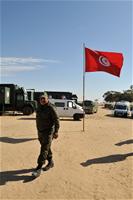 announced that the Border Control Agency FRONTEX was on a joint mission with Italian authorities in central Mediterranean. The operation is called Hermes 2011. The selection of a name is indicative for the significance given to it, as Hermes is the ancient Greek god who, except from being a protector of literature and wisdom, was also a patron of trade, borders and travellers.
announced that the Border Control Agency FRONTEX was on a joint mission with Italian authorities in central Mediterranean. The operation is called Hermes 2011. The selection of a name is indicative for the significance given to it, as Hermes is the ancient Greek god who, except from being a protector of literature and wisdom, was also a patron of trade, borders and travellers.
Mr Barroso also said that the European Union urgently needed a new "political paradigm" in its relations with the southern neighbourhood. "We need a “Pact for Democracy and Shared Prosperity”", the President of the European Commission said. And as, according to his words, Europe understands very well the wish of young Arabs, he too thinks that they are fully "fit" for democracy, which is why the Commission will focus its assistance on three pillars: democracy, the rule of law and respect for fundamental rights; inclusive social development; and a strengthened and thriving civil society.
By the end of the current financial framework (2013) there are around 4bn euro left unspent under the budget for the Neighbourhood Policy, for which Barroso announced would be spent in a more targeted way. The main priority actions would be democratic and constitutional reform, judicial reform, support to non-state actors such as NGOs, trade unions, women organizations and media - quite an ambitious target for the much more pragmatic approach of some member states. Jose Manuel Barroso underlined, though, that this assistance would be applied under strong conditionality to only those who live up to democratic values and the rule of law.
The European Union is also considering to involve more actively the European Investment Bank (EIB) as well as the European Bank for Reconstruction and Development in order work to start for increasing trade and investments in the region.
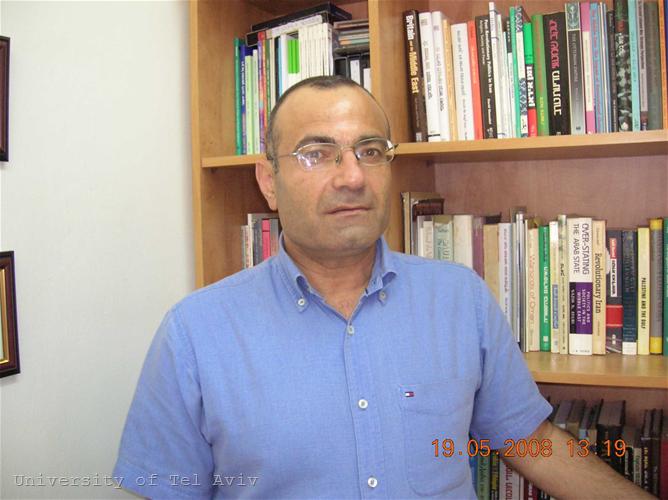 | © University of Tel Aviv
| © University of Tel Aviv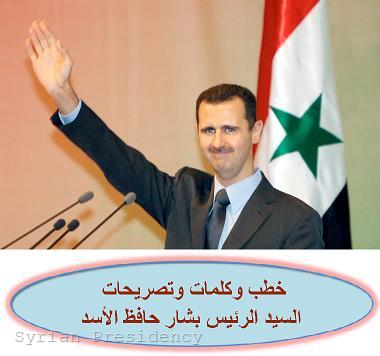 | © Syrian Presidency
| © Syrian Presidency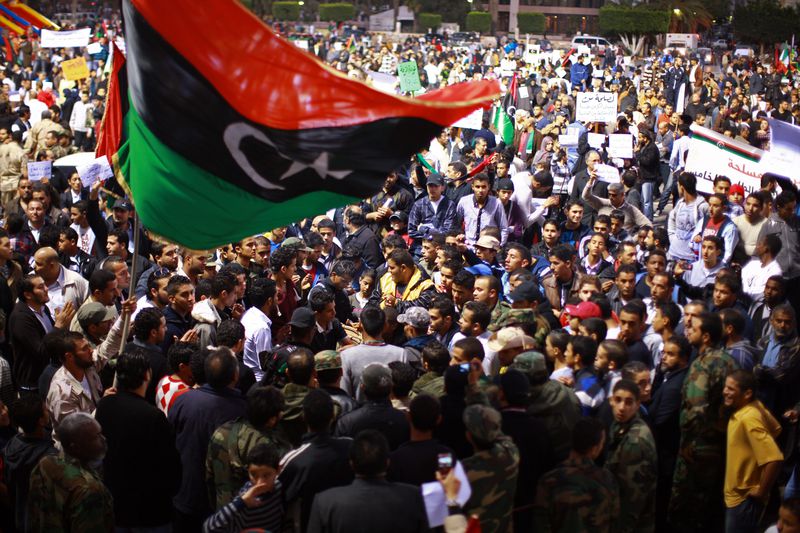 | © UN
| © UN